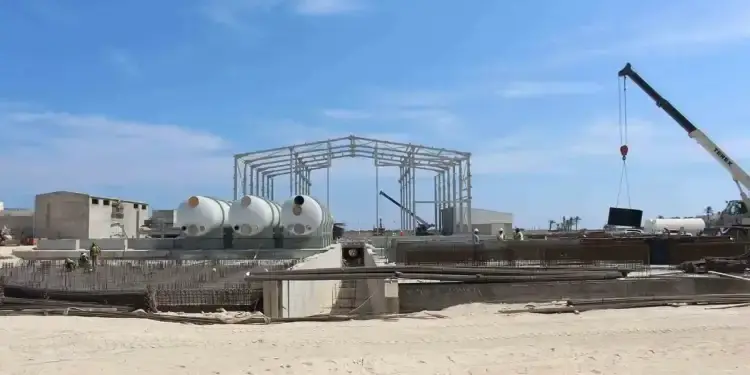Faced with growing water stress, Tunisia is preparing to strengthen its supply of drinking water. The Sousse desalination station, whose commissioning is scheduled for June 2025, will complete the existing infrastructure, with a production capacity of 50,000 cubic meters per day.
Key figures:
50,000 m³/day: capacity of the Sousse desalination station.
370,000 m³/day: national production of water desalged after the commissioning of Sousse, covering almost 15 % of the country’s daily needs.
3.7 million inhabitants: population directly beneficiary of the program.
7 million inhabitants: population indirectly impacted thanks to the interconnection of the northern waters system.
133 million dinars: total budget of the state funded program.
Faced with the worsening of water stress, Tunisia sets up solutions to secure its supply of drinking water. The new Sousse desalination station, whose entry into service is scheduled for June 2025, will complete the existing infrastructure, with a production capacity of 50,000 cubic meters per day.
This announcement was made by Abdelhamid Manja, Chairman and Chief Executive Officer of the National Society for the Operating and Distribution of Water (SONEDE), during his intervention on national radio waves on March 29. This project is part of a global strategy aimed at diversifying sources of water supply, while traditional resources are increasingly threatened by climate change.
Sousse is added to Djerba, Zarâtes, Sfax
Three desalination stations are already in service in the country: in Djerba and Zarâtes, with a capacity of 50,000 m³/day each, and in Sfax, which produces 100,000 m³/day. Ultimately, with the operation of that of Sousse, the national production of desalged water will reach 370,000 m³/day, or around 15 % of the country’s daily needs.
A program of 133 million dinars to support the supply of water
This project is part of an ambitious program launched 7 years ago to meet the water needs of the regions of Cape Bon, Sahel (Sousse, Monastir, Mahdia) and Sfax, which house nearly 3.7 million inhabitants. This program aims to compensate for the effects of climate change, which compromises groundwater resources and surface water management. In particular, it provides for the construction of a storage reservoir in El Kalaa Kebira, with a capacity of 33 million m³, and a water treatment station with a capacity of 350,000 m³/day.
The total cost of the program is estimated at 133 million dinars, funded by the state budget. The project will have direct benefits for 3.7 million Tunisians and indirect for around 7 million thanks to the interconnection of the country’s waters. These new infrastructures will not only help solve water supply problems, but also to stimulate economic development, especially in the industrial and tourist sectors.








